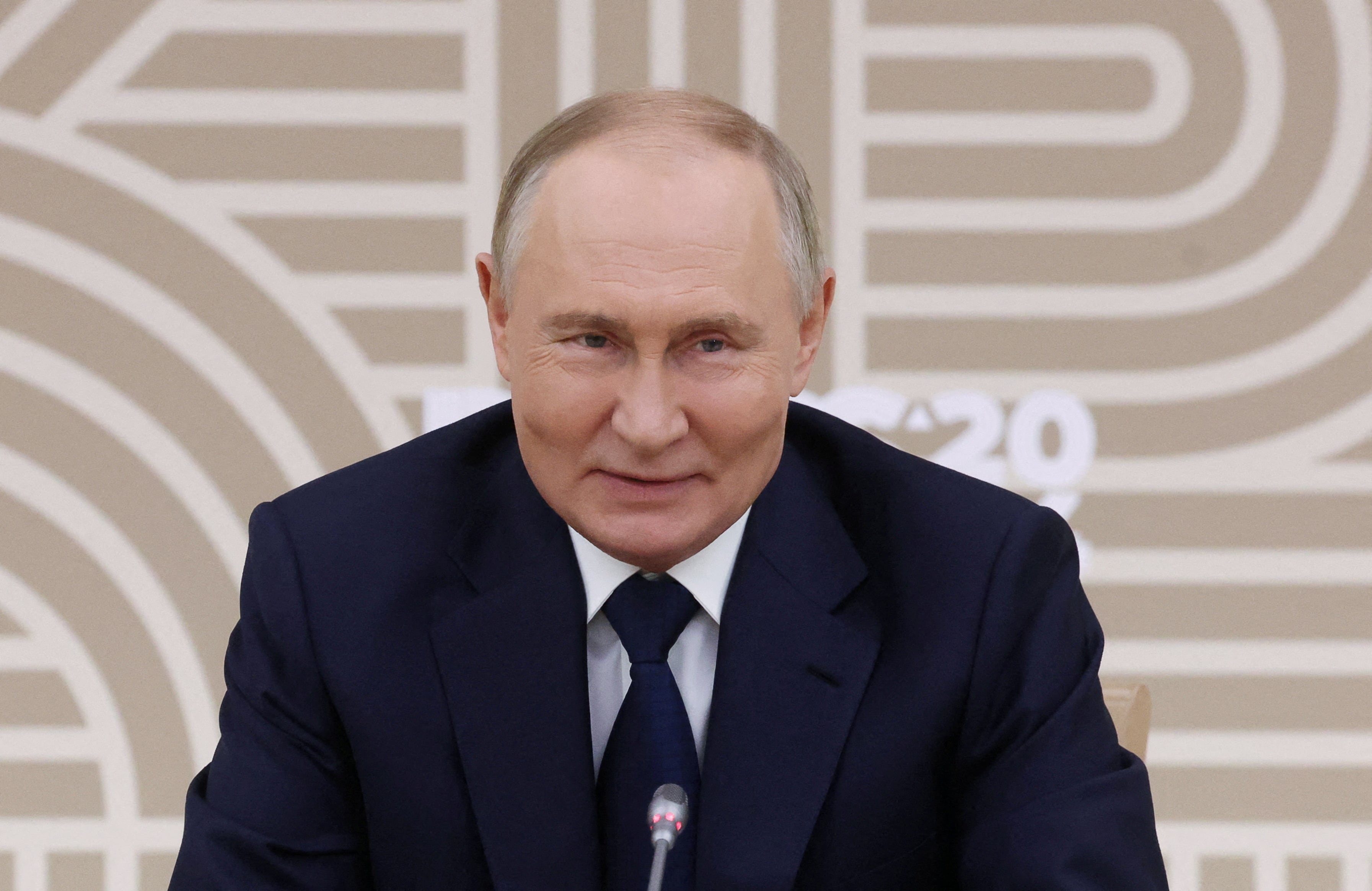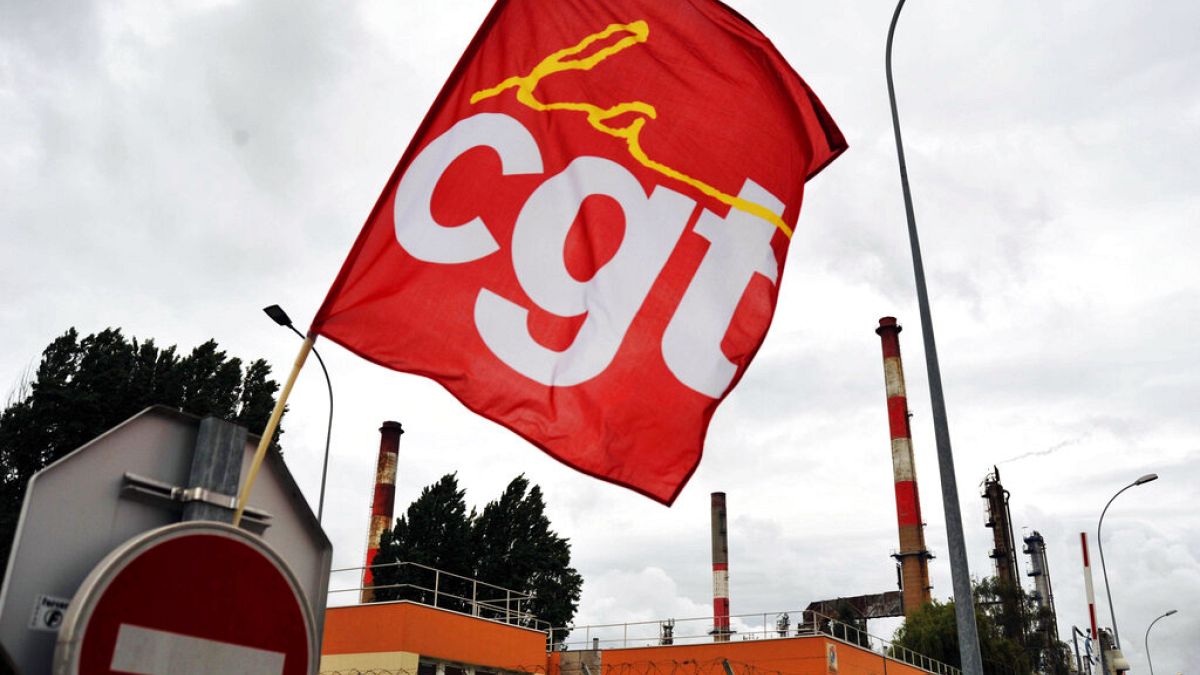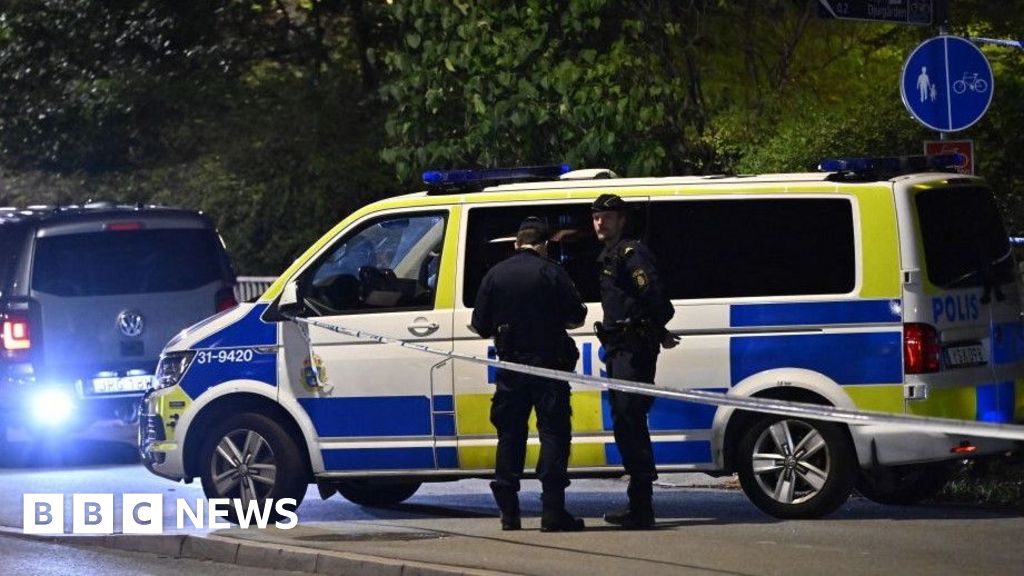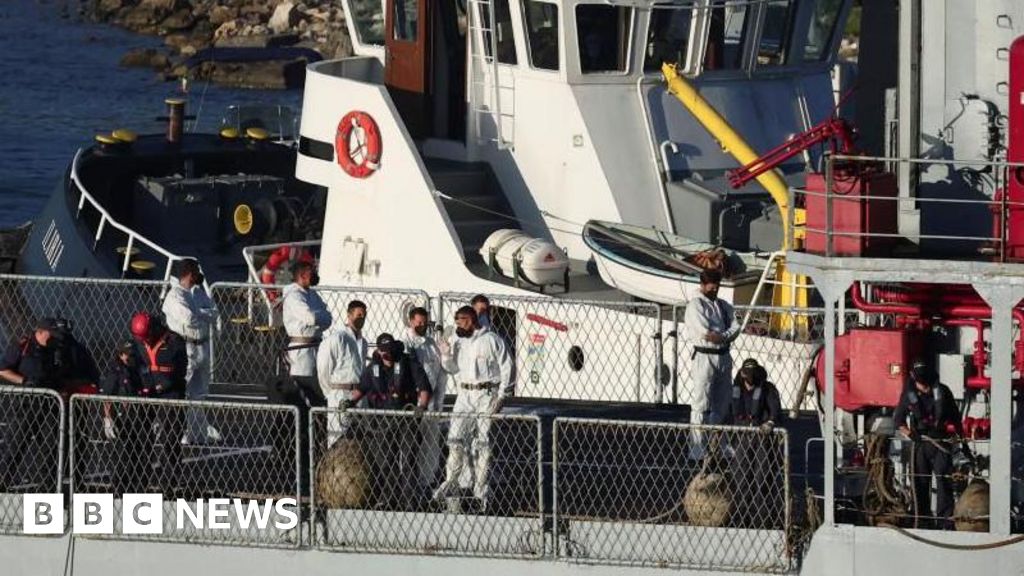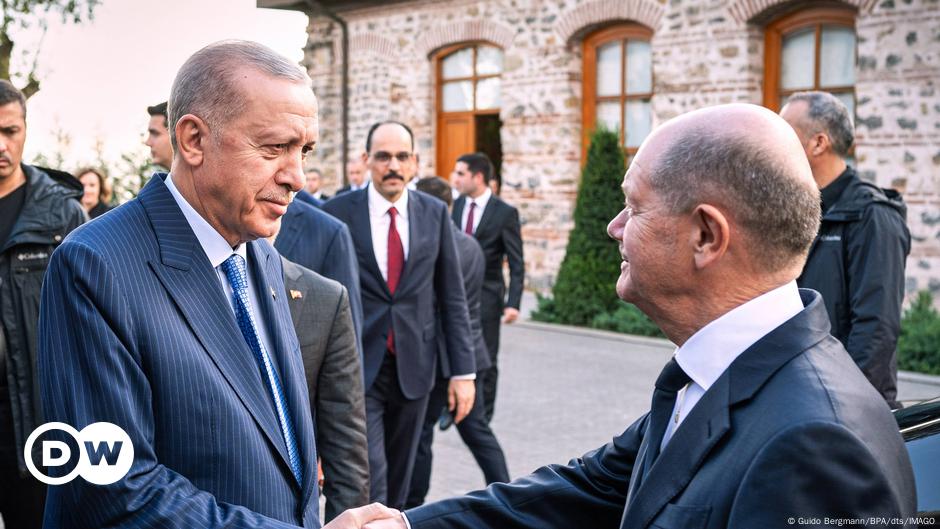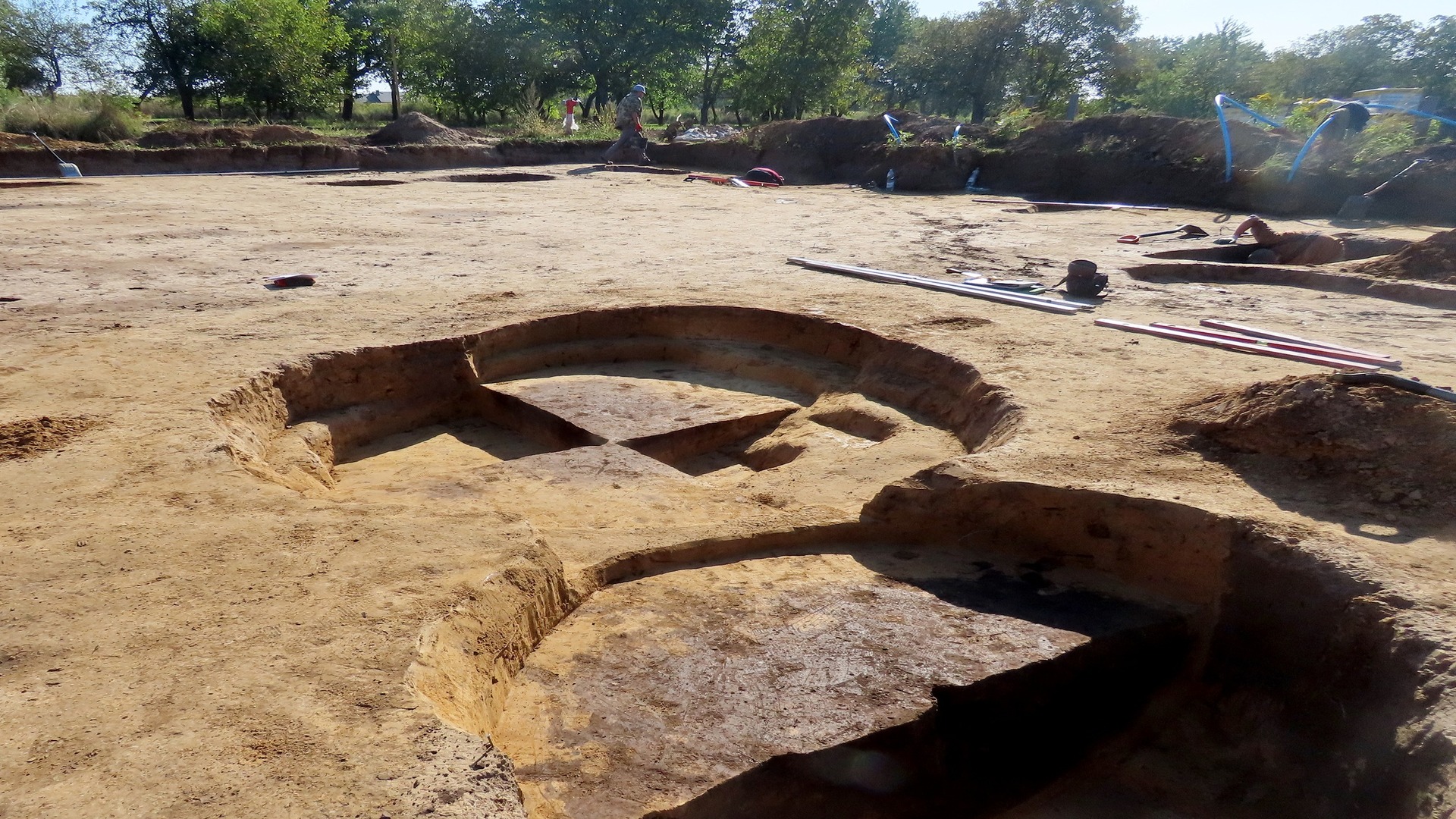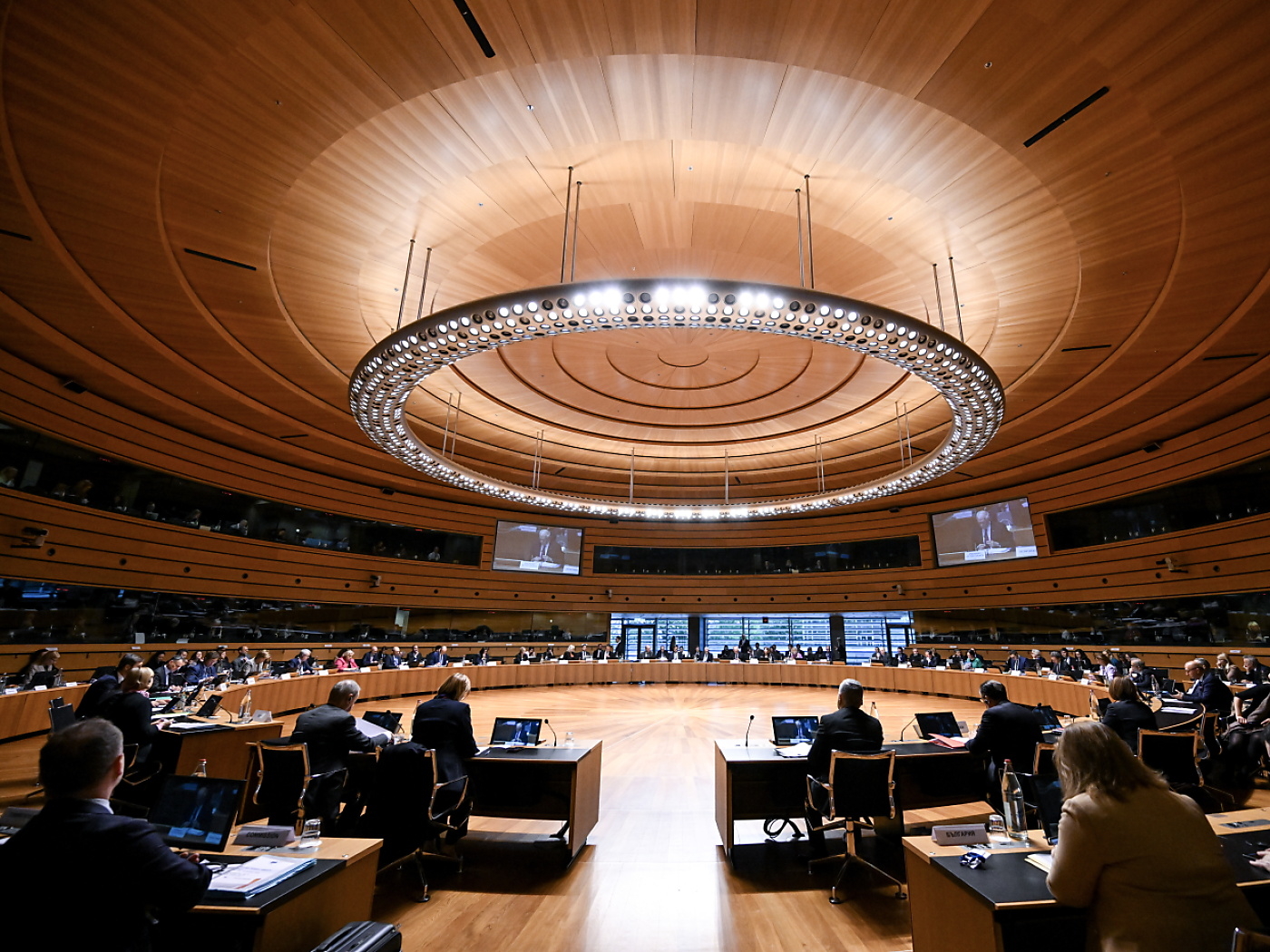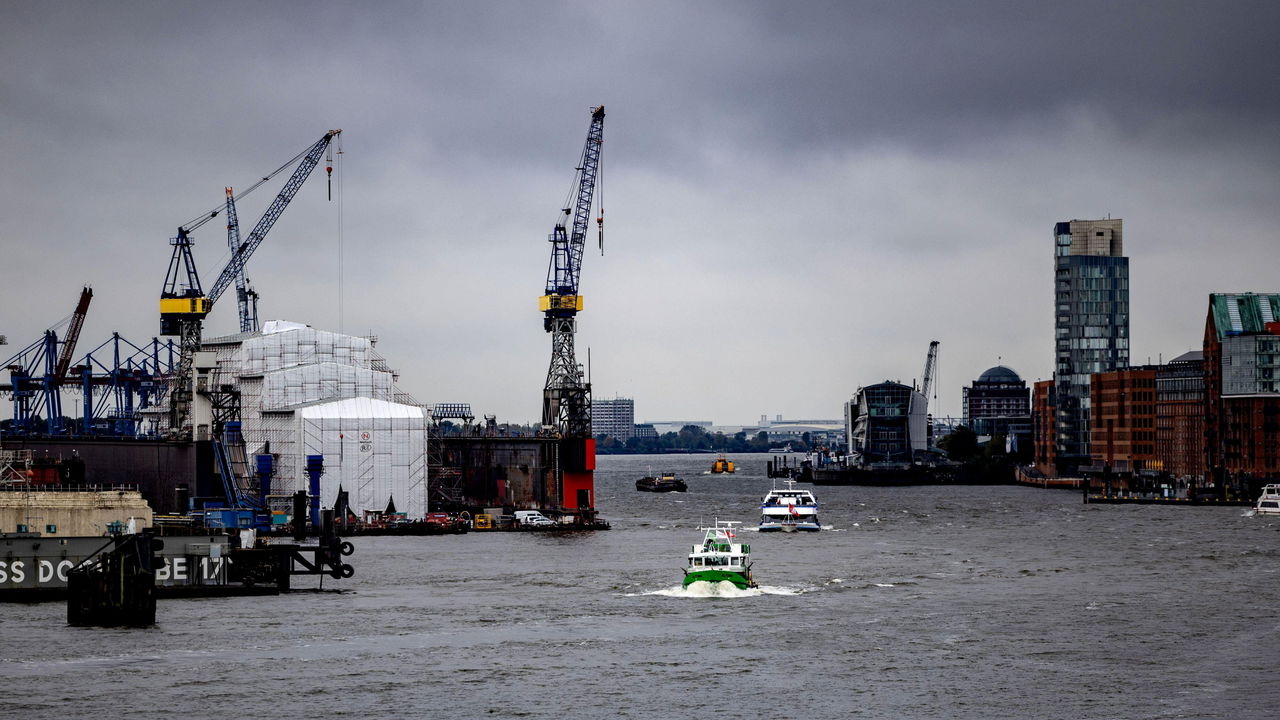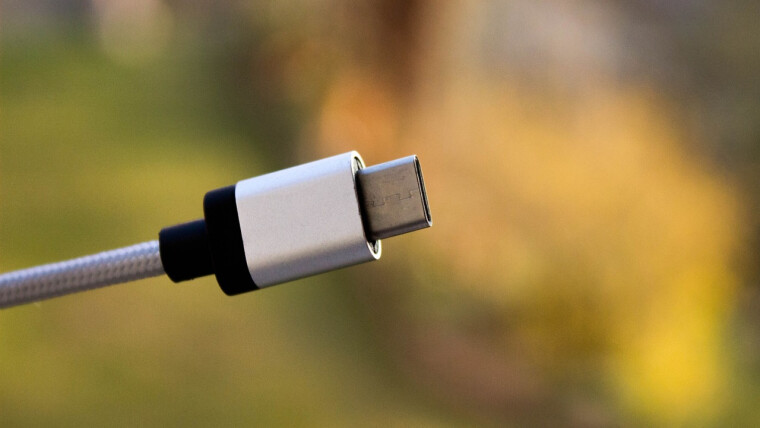Europe
cross-posted from: https://lemm.ee/post/45399196
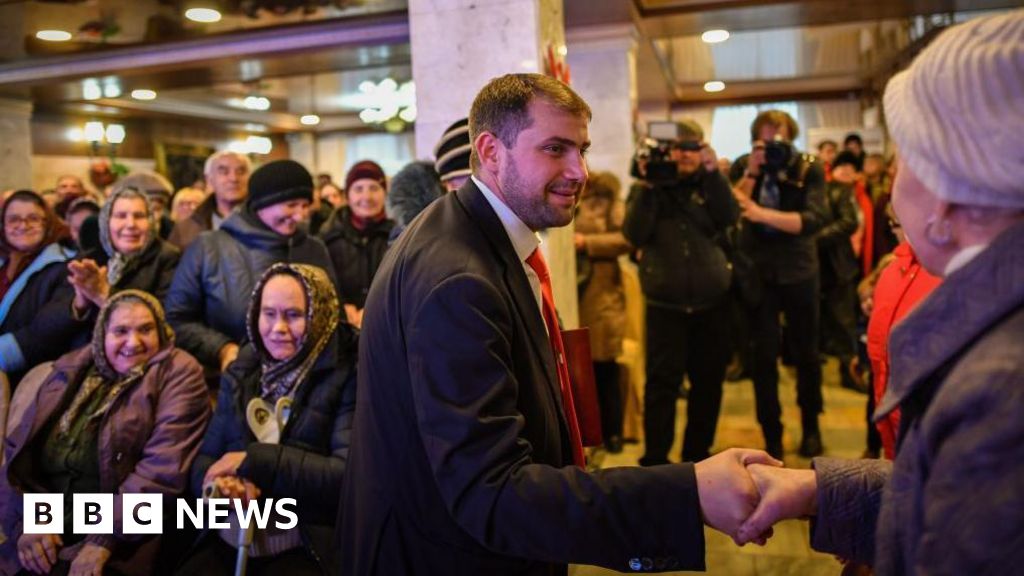 www.bbc.com
www.bbc.com
“I’m not aware of anywhere else where we’ve seen such a brazen and open attempt to corrupt an election,” Moldova’s chief anti-corruption prosecutor, Veronica Dragalin, told me this week in her office in Chisinau. We’re talking about a foreign country sending money in an attempt to influence the election,” Ms Dragalin spells it out. She details evidence gained through wiretaps, police infiltrators and witnesses – some of which her office has made public.
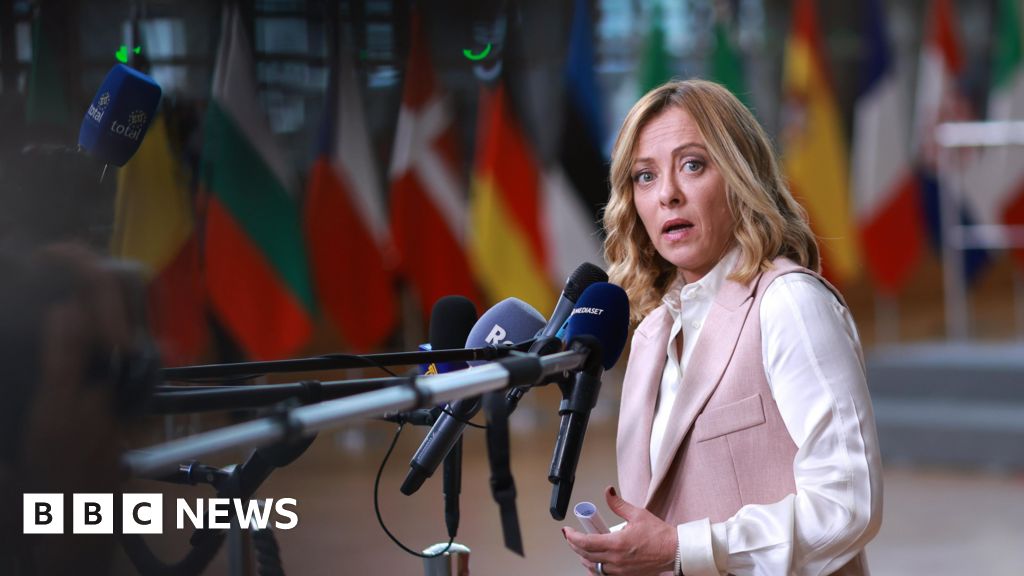 www.bbc.com
www.bbc.com
The move extends a ban on the practice inside the country to also include those who seek it out in places where it is legal, like the US or Canada. Those who break the law could face up to two years in prison and fines of up to €1m (£835,710). The law, proposed by the Italy's far-right governing party, is seen by critics to target LGBT couples - who are not allowed to adopt or use IVF in the country. Surrogacy is when a woman carries a pregnancy for another couple or individual, usually due to fertility issues or because they are men in a same-sex relationship. The law passed by 84 votes to 58 in Italy's senate on Wednesday.
 www.theguardian.com
www.theguardian.com
Taiwan is expected to have access to low earth orbit satellite internet service by the end of the month, a step the government says is crucial in case a Chinese attack cripples the island’s communications. The forthcoming service is via a contract between Taiwan’s main telecoms company, Chunghwa, and a UK-European company, Eutelsat OneWeb, signed last year, and marks a new milestone in Taiwan’s efforts to address technological vulnerabilities, particularly its internet access, after attempts to get access to Elon Musk’s Starlink service collapsed. Chunghwa co-president Alex Chien said 24-hour coverage was expected by the end of the month, with commercial access as soon as sufficient bandwidth was reached. Taiwan is under the threat of attack or invasion by China, which claims historical sovereignty over Taiwan and has vowed to annex it, by military force if necessary. In the meantime it is under a near constant barrage of cyber-attacks, and has had some of its 15 undersea cables connecting it and its outer islands to the world cut multiple times, usually by accidental anchor snags from passing ships.
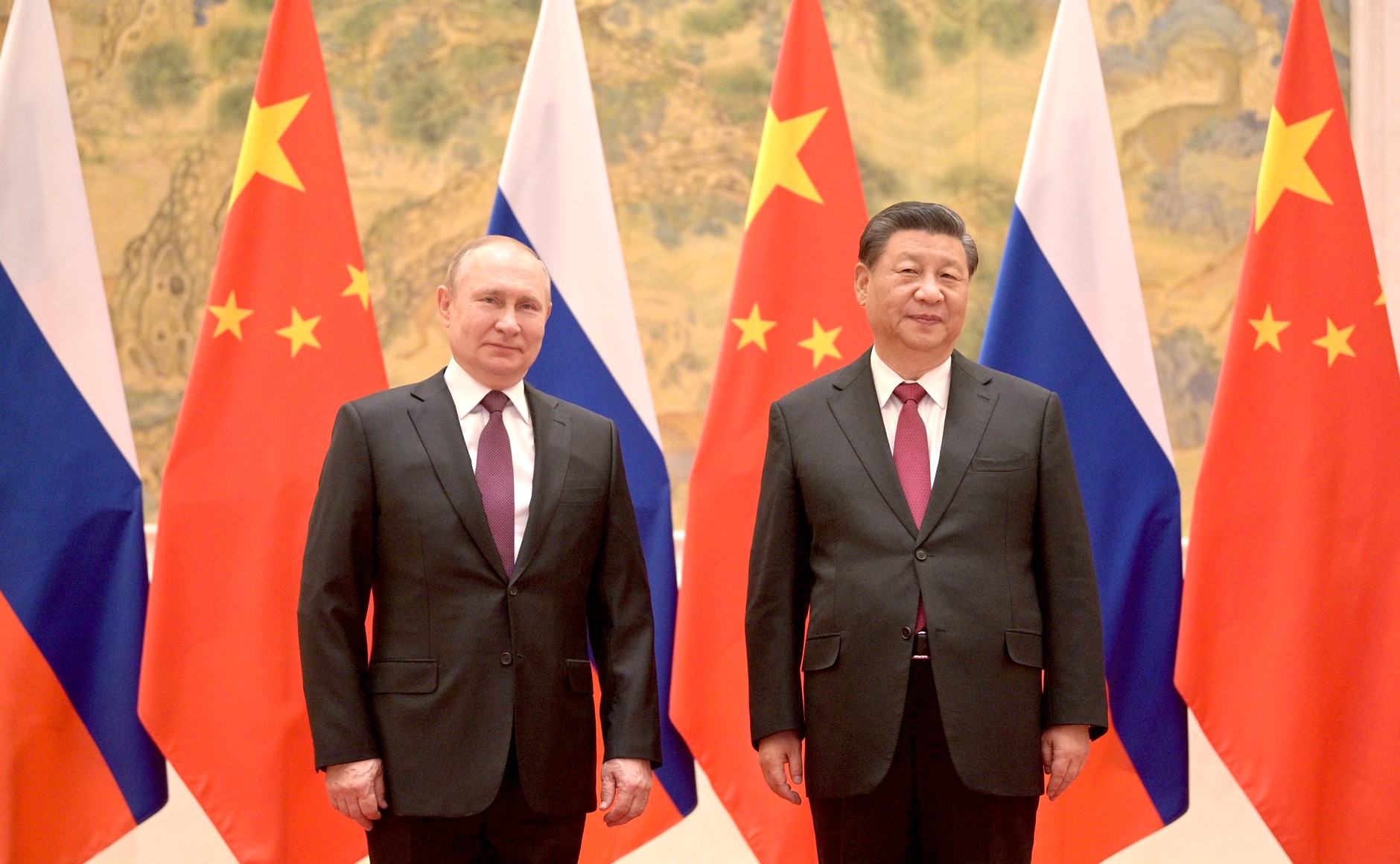 natoassociation.ca
natoassociation.ca
Russia has had to cope with an almost systematic increase in sanctions in scope and scale in order to conduct its invasion of Ukraine. These sanctions aim to hobble Russia’s capacity to procure and produce the necessary products to resupply its military. However, while sanctions have significantly affected Russia’s economy and war effort, Russia has shown adaptability in circumventing these restrictions through various initiatives and engaging with strategic partners, most importantly, the People’s Republic of China and its business entities. [...] A study by the KSE Institute utilizing Harmonized System (HS) codes [...] analyses forty-five common high-priority items (i.e., battlefield goods) and 485 HS codes for critical components [...] Between January and October 2023, Russian imports of battlefield goods totalled $8.77 billion, while critical components amounted to $22.23 billion. Within the 2023 KSE Institute compiled dataset, China has exercised a pivotal role in Russia’s efforts to import battlefield goods and critical components for its military and defence industry. This is observed from the immediate aftermath of Western sanctions being imposed to August-December 2022 when imports of battlefield goods and critical components increased by 84% and 42% respectively. [...] China was instrumental in all stages of the Russian defence industry’s external supply chain between January and October 2023. For instance, where businesses are headquartered, China accounts for 41% of battlefield goods and 41.2% of critical components. Interestingly, the total non-coalition sanctions accounted for 48%, and of these, China represented 46.7%, making China the most dominant power outside the coalition-sanction countries and the most dominant single entity. China’s role increases substantially during manufacturing, representing 63.1% of battlefield goods and 58.7% of critical components produced for Russia. [...] Data shows that Chinese and Hong Kongese companies’ data combined led the sales of the goods and components in question to Russia, accounting for 68.9% of battlefield goods and 57% of critical components. Finally, China also plays a pivotal role in goods and components shipped directly to Russia, with China representing 53.2% of battlefield goods and 53.8% of critical components, respectively. Again, China is followed by Hong Kong at 22.7% and 12.9, with a combined 75.9% and 66.7%. [...] Specific Chinese exports of dual-use components and materials related to Russia’s defence industry and equipment that is being utilized by Russia’s military, including construction equipment, comprises: - Computer Numerical Control (CNC) machines - Semiconductors - Microelectronics and Electronic Components - Ball Bearings - Nitrocellulose - Drones and Electronic Warfare systems - Body armour and Helmets [...] China’s continued support for Russia amid its invasion of Ukraine poses significant risks and challenges that far outweigh any short-term benefits. By aiding Russia, China jeopardizes its international reputation as a responsible global power, becoming a complicit actor in the conflict, violating international law and the core principles of sovereignty. Moreover, Chinese entities supporting Russia and the Chinese government’s lackadaisical response to Western complaints will eventually lead to secondary sanctions, deepening economic strains and retaliation from Western nations. [...]
 www.theverge.com
www.theverge.com
> DSA obligations apply “irrespective of whether the entity exercising decisive influence over the platform or search engine is a natural or legal person,” Thomas Regnier, a spokesperson for the commission, told *Bloomberg*.
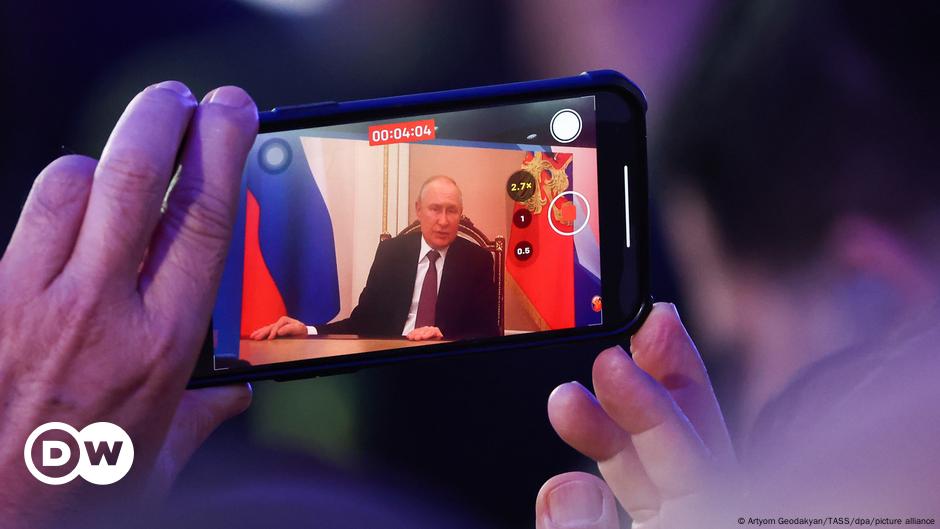 www.dw.com
www.dw.com
Germany remains a central focus of Russian disinformation efforts, and Kremlin-backed campaigns continue to grow in scope and intensity. That was the warning that senior security officials and lawmakers issued this week during a public session of the German parliament's committee responsible for overseeing the country's intelligence agencies. "We have long recognized the threat to Germany from foreign influence and hybrid warfare, especially from Russia," said Konstantin von Notz, a Green Party lawmaker and the committee's chairman. "However, we are now witnessing a new level of intensity, and this development is deeply worrying for all of us." [...] As Germany has emerged as one of the staunchest supporters of Ukraine since Russia launched its full-scale invasion in 2022, the Kremlin has increasingly perceived Germany "as an enemy" and treated it as one, said Bruno Kahl, president of Germany's foreign intelligence agency, the Bundesnachrichtendienst (BND). Kahl explained that Russian President Vladimir Putin has long waged a "hybrid war" against countries in the West to "create a new world order." To achieve this end, Putin is using Russia's secret service agencies "as the spearhead in the fight against the West, with a state mandate, with all the means at their disposal, without legal restrictions and, above all, without any conscience."
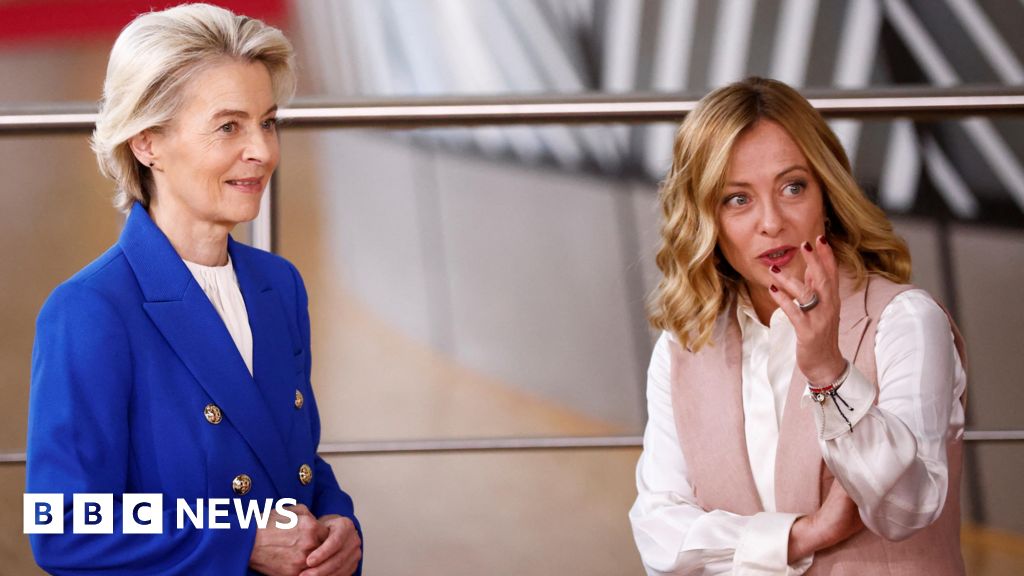 www.bbc.com
www.bbc.com
EU Commission President Ursula von der Leyen has said the bloc could "draw lessons" from the contested Italian policy of processing migrants offshore in Albania ahead of an EU summit focusing on migration. She made the remarks in a letter to member states ahead of the meeting in Brussels on Thursday and Friday, where she said the European Commission would present a new proposal for legislation to increase deportations of migrants. Von der Leyen - who is just starting a second five-year term as European Commission chief - appears to be responding to pressure on migration from across Europe. In her letter to member states, she said the return rate of irregular migrants from EU countries is currently only about 20% - meaning the vast majority of people who are ordered to leave an EU member state do not.
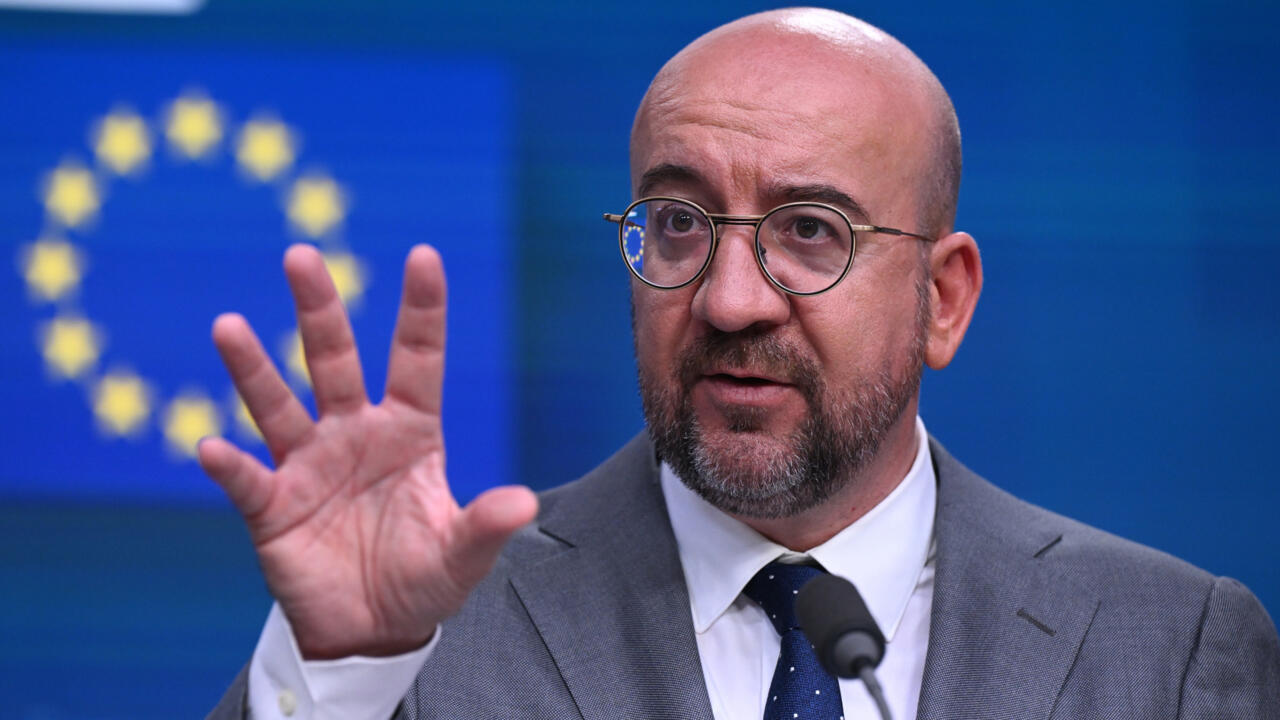 www.france24.com
www.france24.com
The European Council president met Chinese Premier Li Qiang on the margins of a Southeast Asian summit in Laos as Beijing and the European Union impose tit-for-tat penalties on each other's imports in a row about subsidies and protectionism. Michel said in an interview with AFP that after his "frank and candid" talks with Li, he hoped a deal could be struck in the coming days or weeks -- but he warned that getting there would be tough. [...] "We count on China to adapt its behaviour and to understand that we have to rebalance the economic relationships for more fairness, for fair competition, for a more level playing field." [...] A furious Beijing has responded with new tariffs on EU-made brandy, alarming French producers, while Brussels is also investigating Chinese subsidies for solar panels and wind turbines. China is also tangled in a bitter, wide-ranging trade dispute with the United States, with Washington announcing sharp tariff hikes targeting $18 billion of Chinese goods including electric vehicles, EV batteries and solar cells. Beijing reacted angrily to Michel's remarks Friday, condemning what it called the EU's "lose-lose" approach to the dispute. [...] With the global economy rattled by conflict in Ukraine and fresh turmoil in the Middle East, Michel said it was better for all to avoid a trade war. But he insisted the EU would no longer be "naive" about massive government subsidies, though he offered some hope the two sides would find a way out of the row. [...]
 www.haaretz.com
www.haaretz.com
Britain is considering sanctioning Israel's finance minister, Bezalel Smotrich, and national security minister, Itamar Ben-Gvir, over comments they made about civilians in Gaza and West Bank settlers, Prime Minister Keir Starmer said on Wednesday. Previous foreign secretary David Cameron had also recommended sanctioning Smotrich and Ben-Gvir before his then-governing Conservative Party lost an election in July, and Starmer told parliament he too was looking at the option. [Edit title for clarity']
cross-posted from: https://feddit.dk/post/8306272 > >EU brings product liability rules in line with digital age and circular economy > > > >Today [2024-10-10] the Council adopted a directive to update the EU’s civil liability law. The new liability rules better take into account that nowadays many products have digital features and that the economy is becoming increasingly circular.
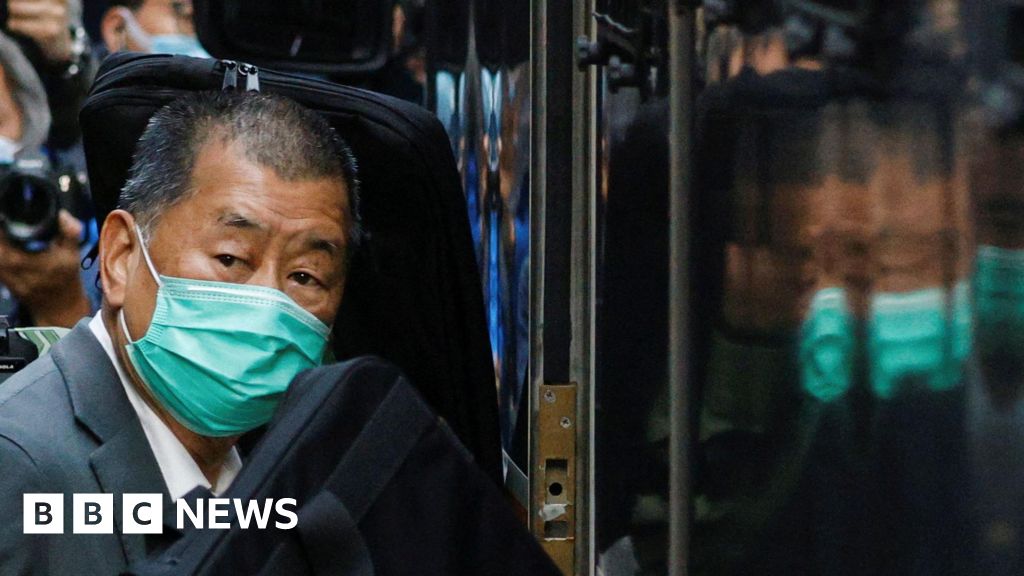 www.bbc.com
www.bbc.com
Securing the release of pro-democracy activist and British citizen Jimmy Lai from a Hong Kong prison is a "priority" for the government, Sir Keir Starmer has said. During Prime Minister's Questions, Conservative leader Rishi Sunak asked if Lai's imprisonment was a breach of the 1984 treaty transferring power over Hong Kong from the UK to China. The prime minister agreed it was a breach and said the government would "continue" to raise the case with China. Lai, who is 76, was arrested in 2020 for fraud and involvement in protests and, following delays, is now facing trial for sedition and collusion with foreign forces. His son called for "action" from Sir Keir to "save my father's life". [...] But he added: "My father will be 77 soon, he has spent close to four years in solitary confinement in a maximum security prison for peacefully campaigning for democracy in Hong Kong. "As you can expect his health has deteriorated by a lot. I would ask our prime minister to put word to action, to save my father’s life and bring him home.” Jimmy Lai has pleaded not guilty, but would face life in prison if convicted. Lai founded the now-defunct newspaper Apple Daily and was involved in pro-democracy protests in Hong Kong. [Edit title for clarity.]
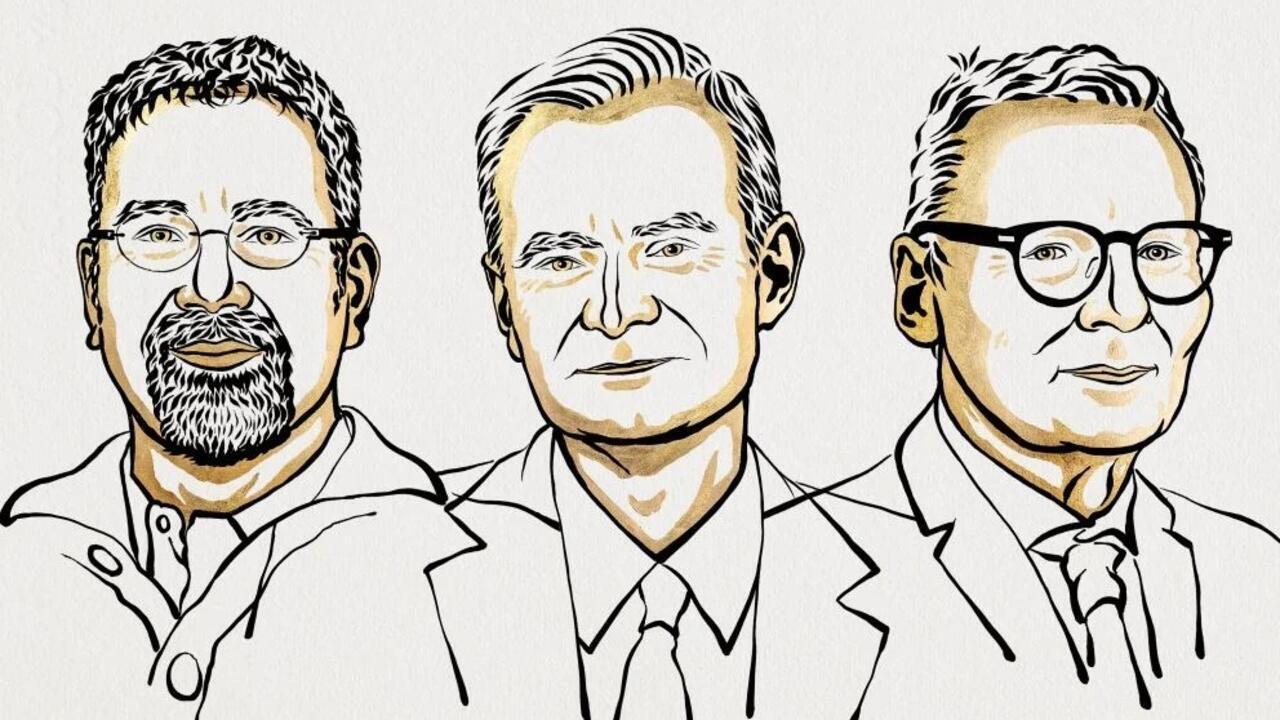 www.france24.com
www.france24.com
Daron Acemoglu, Simon Johnson and James A. Robinson won the 2024 Nobel memorial prize in economics "for studies of how institutions are formed and affect prosperity", the Royal Swedish Academy of Sciences said on Monday.
 www.ecb.europa.eu
www.ecb.europa.eu
The Governing Council today decided to lower the three key ECB interest rates by 25 basis points. In particular, the decision to lower the deposit facility rate – the rate through which the Governing Council steers the monetary policy stance – is based on its updated assessment of the inflation outlook, the dynamics of underlying inflation and the strength of monetary policy transmission. Red: added some changes to auto title for clarity.
cross-posted from: https://lemmy.ml/post/21415339 > As Big Tech’s market power grew, so did its political clout. Now, as the EU tries to rein in the most problematic aspects of Big Tech – from disinformation, targeted advertising to unfair competition practices – the digital giants are lobbying hard to shape new regulations. > > [Read the full report.](https://corporateeurope.org/sites/default/files/2021-08/The%20lobby%20network%20-%20Big%20Tech%27s%20web%20of%20influence%20in%20the%20EU.pdf) > > In 'The Lobby Network', Corporate Europe Observatory and Lobbycontrol offer an overview of the tech industry's EU lobbying firepower. For the first time, we map the 'universe' of actors lobbying the EU’s digital economy, from Silicon Valley giants to Shenzhen’s contenders; from firms created online to those making the infrastructure that keeps the internet running; tech giants and newcomers. > > We found a wide yet deeply imbalanced ‘universe’: > - with 612 companies, groups and business associations lobbying the EU’s digital economy policies. Together, they spend over €97 million annually lobbying the EU institutions. This makes tech the biggest lobby sector in the EU by spending, ahead of pharma, fossil fuels, finance, and chemicals. > - in spite of the varied number of players, this universe is dominated by a handful of firms. Just ten companies are responsible for almost a third of the total tech lobby spend: Vodafone, Qualcomm, Intel, IBM, Amazon, Huawei, Apple, Microsoft, Facebook and Google spend more than €32 million making their voices heard in the EU. > - out of all the companies lobbying the EU on digital policy, 20 per cent are US based, though this number is likely even higher. Less than 1 per cent have head offices in China or Hong Kong. This implies Chinese firms have so far not invested in EU lobbying quite as heavily as their US counterparts. > - digital industry companies are not just lobbying individually. They are also collectively organised into business and trade associations which are themselves important lobby actors. The business associations lobbying on behalf of Big Tech alone have a lobbying budget that far surpasses that of the bottom 75 per cent of the companies in the digital industry. > >
cross-posted from: https://lemm.ee/post/44916164
 theconversation.com
theconversation.com
**Moldova is emerging as a major strategic battleground in a fierce competition between Russia and the west. A Kremlin-backed disinformation campaign has intensified over the last few months, in the run-up to Moldova’s presidential elections.** One of the key reasons for this is that a referendum on EU membership has been scheduled for the same day, October 20. The challenges for this small country, wedged between Ukraine and Romania, are complex. Russia continues to foment instability through its persistent disinformation initiatives, instigation of anti-government protests, and acts of sabotage and vandalism. Add to this credible allegations of vote buying, and efforts to call into question the legitimacy of a pro-European election and referendum result, and the situation in Moldova appears highly combustible. [...] For many Moldovans, EU membership is associated with better economic development in one of Europe’s poorest countries. [...] But this vision that the EU can help Moldova’s economy is fiercely contested by Russia and its proxies in Moldova. They exploit the anxiety among a significant number of Moldovans that a vote to join the EU is one that will force the country towards higher inflation, more immigration, politicised anti-corruption measures, mandatory English-language proficiency, and the sale of Moldovan land to foreigners. [...] As countries that have joined the EU – from the Baltic to the Balkans – have demonstrated over the past two decades, the EU accession process can help reshape political and economic institutions, and can ultimately help create a more optimistic vision of the future. Crucially, this is not something that Russia’s narrative of fear can credibly offer to the majority of Moldovans.
Spanish authorities on Tuesday said they had arrested four people suspected of orchestrating a sanctions-busting commercial network after intercepting 13 tons of chemical products bound for Russia. The investigation began in 2022 after Western countries imposed waves of sanctions on Russia to prevent it from acquiring equipment and technologies for its war with Ukraine. Police and customs officials impounded the chemical products found in a container in the port of Barcelona, Spanish national police said in a statement.
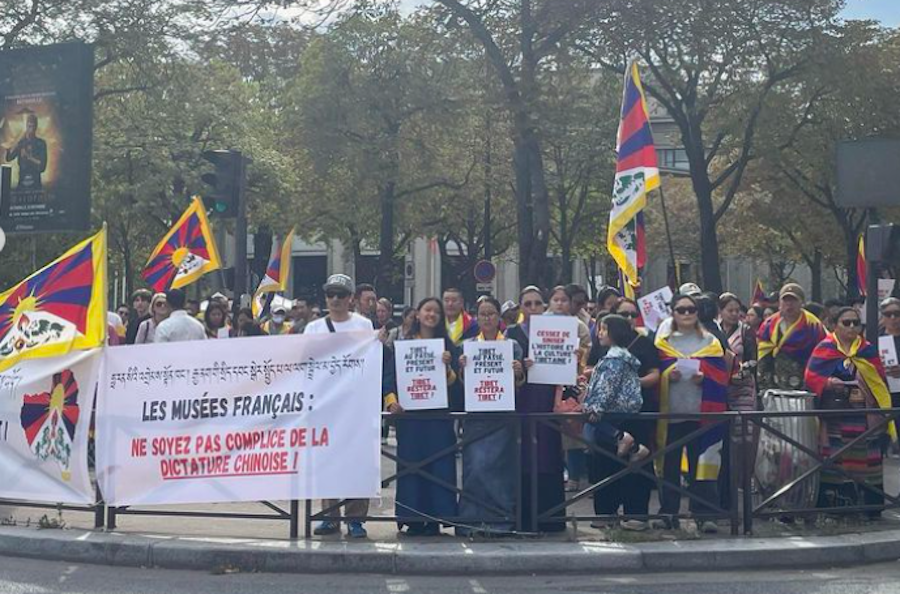 www.phayul.com
www.phayul.com
**Tibetans and Tibet supporters in the French capital are continuing their protests against the Musée Guimet, despite the museum’s recent decision not to rename exhibitor spaces as “Tibet” rather than “Himalayan world. While the Musée du quai Branly apologised and promised, on September 25, to restore the name “Tibet” with the romanised version of a Chinese term, “Xizang” on its artefacts. ** For weeks, members of the Tibetan diaspora, human rights activists, and Students for a Free Tibet (SFT), a chapter-based network of youth activists, have gathered outside the Musée Guimet, demanding the recognition of Tibet as a distinct cultural and historical entity. Protesters chanted slogans such as “Tibet Exists. Name It.” and “Shame on Guimet,” calling on the museum to honor Tibetan heritage by renaming the exhibition halls to reflect Tibet’s true identity. [...] Despite the peaceful demonstrations, museum officials have rejected the appeal, stating that the name change was part of a broader global framework and that Tibet continues to be mentioned within the museum’s exhibits. “Many researchers and experts in the field have also expressed their disagreement with this renaming and the invisibilisation of Tibet that it entails,” said Tenzin Yangchen, President of SFT France, speaking on behalf of the Tibetan community. “Their opposition underlines the importance of maintaining historical and cultural integrity in our academic and museum institutions. That is why we cannot remain silent.” Yangchen also emphasised that the issue at the Guimet Museum is just one example of the increasing Chinese influence in France. “For decades, the Tibetan people have suffered under the oppression of the Chinese government. We cannot remain silent in the face of this injustice that now extends to our own cultural institutions.” She added that the protests would continue for as long as necessary until the Guimet Museum acknowledges Tibet as a nation with its own identity, culture, and artistic heritage. The activists are also stepping up efforts to engage with local politicians and government officials to press for change. [...] The controversy gained public attention when Le Monde raised concerns that the Musée du Quai Branly had replaced “Tibet” with “Xizang Autonomous Region,” and the Musée Guimet had renamed its exhibition spaces focused on Tibet as the “Himalayan world.” Scholars argue that these changes align with Chinese state propaganda, which aims to rewrite and distort Tibetan history and culture, ultimately legitimising China’s illegal occupation of Tibet.
cross-posted from: https://lemm.ee/post/44826676
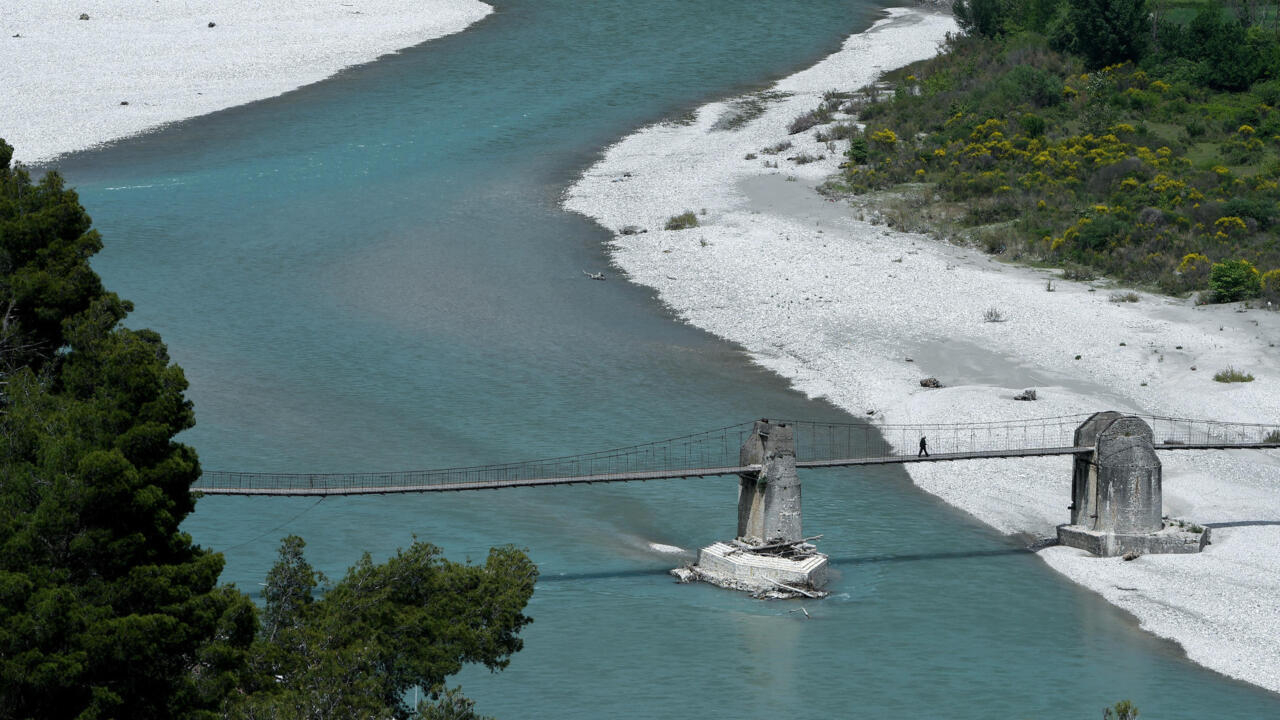 www.france24.com
www.france24.com
Only 37 percent of Europe’s surface waters are in good condition, warns the European Environment Agency. Climate change, habitat degradation, freshwater overuse and pollution are key threats. "Our waters face unprecedented challenges," said EEA Executive Director Leena Yla-Mononen, highlighting risks to Europe's water security.
 therecord.media
therecord.media
[Archived link](https://web.archive.org/web/20241005085234/https://therecord.media/tiktok-more-dangerous-ukraine-telegram) **Chinese social media giant TikTok is “more dangerous” to Ukraine in terms of spreading Russian propaganda and disinformation than the Russia-founded messaging app Telegram, according to Alina Aleksieeva, the deputy head of Ukraine’s State Center for Countering Disinformation (CPD).** [...] “We often perceive Telegram as the primary culprit, given its abundance of anonymous Russian channels and the impersonation of Ukrainian ones,” said Svitlana Slipchenko, deputy executive director of the data analytics platform Vox Ukraine. “But the problem extends beyond Telegram — fake news is widespread on TikTok, Facebook, Instagram, and Threads,” she added. “The danger is focusing too narrowly on one platform while Russian propaganda continues to thrive across the entire digital landscape.” Earlier this year, the CPD published a list of over 80 TikTok accounts used for Russian disinformation. The list includes official accounts of Russian state media, such as TASS, Sputnik, and RIA Novosti. [...] Ukraine has previously considered banning TikTok. The app’s future in the U.S. is uncertain due to concerns that ByteDance may have ties to the Chinese government. U.S. authorities have also accused the app of spreading harmful content and misinformation and posing privacy risks. [...] Ukraine has been paying close attention to foreign social media apps due to the risks they pose to its users amid the ongoing war. Earlier in September, Ukraine banned Telegram on official devices used by state and security officials, military personnel, and employees of critical infrastructure facilities. [...]
